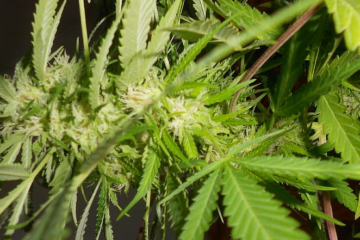Virginia Governor Glenn Youngkin (R) is expected to veto a bill that would establish a legal market for retail marijuana sales, potentially erasing hundreds of millions of dollars in projected state revenue. A newly released fiscal report highlights the economic implications, detailing how the veto could impact funding for pre-kindergarten programs, community reinvestment, and substance use treatment.
Millions in Lost Revenue
If the proposed legislation is blocked, Virginia stands to lose nearly $300 million in total revenue by the end of fiscal year 2031. According to the Department of Taxation, the state would have generated an estimated $7.3 million in fiscal year 2026, with revenue increasing annually to reach $87.84 million by fiscal year 2031.
The bulk of this income would come from two sources:
- An 8 percent excise tax on marijuana sales.
- A 1.125 percent sales tax applied to cannabis transactions.
While these numbers reflect only state-level revenue, additional local taxes of up to 2.5 percent could generate millions more for municipal governments. If widely implemented, local governments could bring in up to $2 million in fiscal 2026, rising to approximately $24.09 million by 2031.

Who Loses Out?
Rejecting the bill would directly impact programs intended to benefit from marijuana tax revenue. Under the proposal, the money would be distributed across key areas:
- Community reinvestment: The Cannabis Equity Reinvestment Fund, which supports social equity initiatives, would have received an estimated $1.92 million in fiscal 2026. That number was projected to rise to $46.26 million by 2031.
- Early childhood education: Pre-kindergarten programs stood to receive a significant share of the revenue.
- Substance use treatment: Funding would have been directed to addiction services and recovery programs, addressing substance abuse challenges across the state.
Instead, these initiatives may face funding shortfalls as alternative revenue sources would need to be identified.
The Political Landscape
Youngkin has remained largely silent on the bill, but Republican lawmakers have signaled strong opposition. Many in the party argue that legal marijuana sales would lead to increased substance abuse and law enforcement challenges.
Democrats, however, view the potential veto as a missed economic opportunity. Sen. Aaron Rouse (D) and Rep. Paul Krizek (D), who sponsored the bill, stress that Virginia is already losing business to neighboring states that have legalized marijuana sales. They also highlight the state’s existing recreational marijuana laws, pointing out that Virginians can legally possess and use cannabis but have no regulated means to purchase it.
Virginia vs. Neighboring States
Virginia’s stance on marijuana is increasingly out of sync with nearby states:
| State | Retail Sales Legal? | Estimated Tax Revenue (2023) |
|---|---|---|
| Maryland | Yes | $135 million |
| D.C. | Limited | $30 million |
| North Carolina | No | N/A |
| West Virginia | No | N/A |
Maryland, which launched retail sales in July 2023, saw rapid revenue growth, suggesting Virginia could see similar gains. Advocates argue that delaying legalization only sends business across state lines, depriving Virginia of tax revenue while failing to curb illegal sales.
What Happens Next?
If Youngkin vetoes the bill as expected, lawmakers will have to decide whether to attempt an override or wait for a more favorable political climate. The Democratic-led Senate may push back, but without bipartisan support, the bill’s future remains uncertain.
For now, Virginia risks not only missing out on millions in revenue but also leaving its residents with limited legal purchasing options. The debate over marijuana sales is far from over, and the economic stakes are higher than ever.



